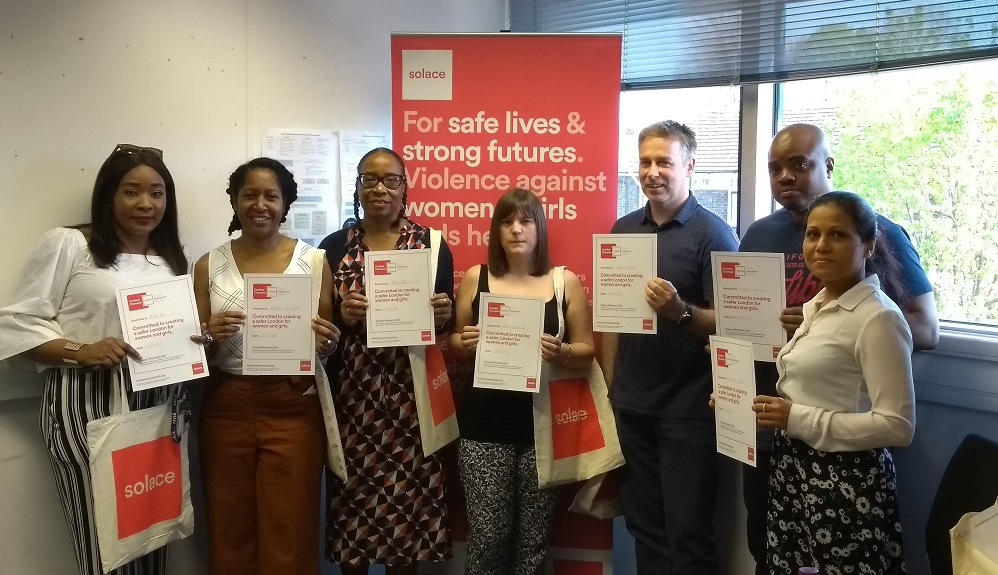I work predominantly with young mothers. It’s incredibly important for me to recognise the signs of domestic abuse and to know how to best respond when a disclosure is made – I’d estimate that just over a third of the young people I work with are survivors of domestic abuse. I knew a little about domestic and sexual violence before I joined the London Champions programme but I was unaware of the scale of the problem.
Becoming a champion involved attending three full days of training around domestic abuse. For me, becoming a champion also involved taking the lead on this area within my service. Once you become a champion, you also become part of a wider network of individuals who have received the same training and have the opportunity to meet up at quarterly networking events.
One of the main takeaways for me is that domestic abuse can affect anyone, regardless of age, gender, sexuality, religion or profession. We discussed in detail the reasons why it might be difficult for a survivor to seek help or to leave and this has helped me to have a far better understanding of why some of the young people I work with have stayed in abusive relationships.
Becoming a Solace Champion has given me so much more confidence when faced with disclosures. I’ve been given practical tools to use with clients to help them to explore what makes a relationship healthy or unhealthy. These tools make talking about domestic abuse so much easier and I see myself using them a lot in my current role.
The Network events are always interesting. They’re a great way to further your knowledge and to stay in touch with colleagues across the sector who have a similar interest in providing clients with consistent and high-quality support, information and advice around domestic abuse. Most recently I attended a Network event that focused on the psychological impact of rape and sexual assault on survivors.
If you do a frontline role, you will undoubtedly work with people who have experienced, or are at risk of experiencing, domestic abuse. It’s therefore essential that you know how to help survivors. The training is also extremely interesting – I’d thoroughly recommend it.


